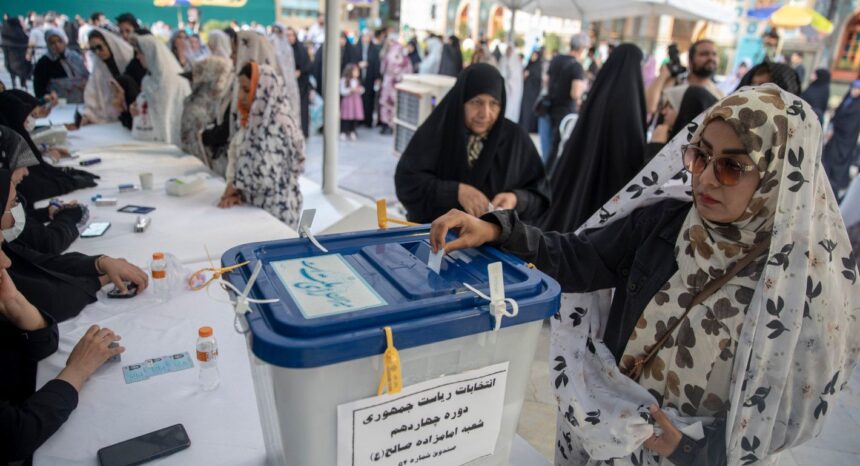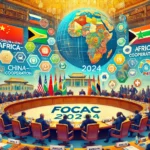This article examines the various effects of the multiple elections held worldwide in 2024, with a particular focus on the global state of democracy. The report paints a complex picture, highlighting instances of democratic achievements in certain places and the consolidation of autocratic rule in other regions.
The article addresses specific nations in which elections either brought to light or potentially aggravated democratic backsliding, as well as countries that are exhibiting signs of democratic reform and strength.
More specifically, it examines the state of democracy around the world in the year 2024, pulling from a variety of national elections to highlight the different political climates that exist. It underscores the contrast between the persistent authority of autocratic leaders in certain countries and the democratic achievements that have taken place in other regions. To be more specific, it highlights the differences between stable electoral processes in established democracies, which have seen the growth of conservative forces, and the political instability that exists in autocratic governments or states that are on the verge of democratic progress.
The analysis emphasizes how these electoral outcomes transcend national boundaries, impacting political relations globally and shaping people’s perceptions of democracy. This continuous evaluation offers fundamental insights into how impending elections have the potential to transform democratic frameworks around the world, indicating that these elections could have substantial repercussions for future international alignments and management systems. During the remaining elections of the year, this nuanced assessment will serve as a prelude to more in-depth studies to come.
How Global Democracy Is Faring in the Year of Elections
What many observers have called the year of elections is now two-thirds over—with contests having been held in numerous countries from Mexico and South Africa to Pakistan and Indonesia. What have been the implications thus far for the health of global democracy? In a recent essay, former White House official Ben Rhodes took a dark view, highlighting the success of autocrats in dominating votes in various places and lamenting that the run of elections around the world was in danger of becoming “an extended wake” for democracy. While elections have been a depressing spectacle in some closed systems, a wider look at the electoral panorama reveals a more mixed picture, with good news and bad news for democracy occurring in roughly equal measures.
In most of the autocracies where they were held, elections were predictable processes affirming the grip of repressive rulers, such as in Belarus and Bangladesh. The only uncertainty in these cases was whether the vote share for the leader would stay in the 80 to 90 percent range, such as in Russia and El Salvador, or top 99 percent, as it did in Rwanda. Iran’s presidential elections, held in June and July following the death of president Ebrahim Raisi in a helicopter crash, brought a small surprise in the election of Masoud Pezeshkian, a relative moderate. Pezeshkian may pursue some modest liberalizing reforms on the social side, such as concerning the rules relating to hijabs, but his powers are limited, and his election does not signal any likely changes to the deeply entrenched authoritarian structures of the regime.
While these elections appeared to cement the hold of repressive regimes, such regimes can be unpredictably brittle, as vividly demonstrated in Bangladesh. Less than seven months after steamrollering her way to a fifth term as prime minister, Sheikh Hasina had to flee the country to avoid protest mobs calling for her ouster. In Venezuela’s July presidential contest, the opposition fought valiantly against harsh restrictions and repression to gain what credible domestic and international observers believe was a significant majority of the votes. The government’s fabrications of the results and stonewalling against the subsequent domestic protests and international pressure have kept it in place for now, but the delegitimizing effects of the election for the government, both domestically and internationally, are potentially consequential over time.
On the other end of the political spectrum, elections held throughout the year in consolidated democracies were mostly routine affairs. Conservative parties gained ground in the majority of these contests—sometimes primarily mainstream center-right parties, as in Finland and Panama, sometimes both center-right and far-right parties, as in Belgium and Portugal. Where far-right parties increased their vote shares, their gains were generally incremental, including in the European Union’s parliamentary elections, which provided a useful snapshot of the overall European political landscape. France was a somewhat more complicated case. Snap legislative elections produced significant gains both on the far right and the left, but the future direction of governance remains uncertain, given the continued presidency of Emmanuel Macron. The UK’s shift away from longtime Conservative Party rule to a Labour-led government was the notable exception to the larger trend among democracies of conservative gains.
In countries hovering between consolidated autocracy and stable democracy, a number of elections signaled some potential movement, either toward greater democratic backsliding or potential democratic renovation. On the negative side of the ledger were Indonesia and Pakistan. Observers worry that the new president emerging from Indonesia’s February general election, former defense minister and longtime politician Prabowo Subianto, has at best an uncertain commitment to democratic values. Moreover, the campaign leading up to the elections embodied multiple concerning trends of Indonesia’s recent political trajectory, including decreased respect by powerholders for the rule of law and toxic levels of polarization. Pakistan’s parliamentary elections, held in February, saw an unexpectedly strong showing by candidates associated with Pakistan Tehreek-e-Insaf (PTI), the party led by jailed former prime minister Imran Khan, despite the government’s multifarious efforts to suppress the PTI. Yet the Pakistani military, long in the driver’s seat of Pakistani politics, shut down the voters’ wishes. It orchestrated the formation of a new government that excluded the PTI, and in so doing, it sent a powerful reminder about the stark limits of the country’s formally democratic system.
But some positive developments occurred in this in-between category of countries. Senegal put to rest the concerns of last year that its outgoing president might try for an unconstitutional additional term or simply cancel the elections altogether. In March, voters elected Bassirou Diomaye Faye, a dynamic political newcomer, on promises of democratic and economic reforms. In India, Narendra Modi and his Bharatiya Janata Party (BJP) gained a third term but did much less well than expected, failing to maintain their parliamentary majority and forced to enter into a governing coalition. The elections revealed some limits to the public support that Modi and the BJP have worked to amass for a political agenda colored by serious elements of illiberalism and intolerance.
In Hungary, the ruling Fidesz party, which has engineered Hungary’s democratic decline since coming to power in 2010, was startled in the European Parliament elections by two developments: the strong support for a new political challenger, Peter Magyar and his Tisza Party, and by its own showing, the weakest in such elections since 2004. A possible opposition victory in the next national elections, to be held in 2026, suddenly seems at least imaginable in a country that has long been locked in illiberal, dominant-party rule. And in South Africa’s May general elections, the vote share of the ruling African National Congress declined below 50 percent for the first time since it gained power in 1994. This result showed the ability of a system long dominated by one party both to take account of changing voter sentiments and to offer alternatives.
So far in 2024, autocracies have exploited elections for their own purposes yet sometimes to their own peril. Elections in many democracies have underlined democratic consolidation. And in swing state countries, elections broke in both positive and negative directions. The year of elections can be understood as a telling reflection of the overall uncertain direction of travel of the global state of democracy. After many years of a widening democratic recession, a sense of plateauing has occurred. This has left a world defined in three political parts: a set of consolidated autocracies that for the most part are fairly stable, a set of consolidated democracies that are similarly stable, and a third zone comprising countries in between these political poles and prone to small but potentially important movements toward democratic backsliding or renovation.
Whether this plateauing ultimately starts to tilt decisively toward a further deepening of the recession or to move decisively away from it is highly uncertain. The remaining elections in 2024—especially the U.S. presidential election in November—will provide important additional clues, but a final answer will probably become clear only over the next several years.







